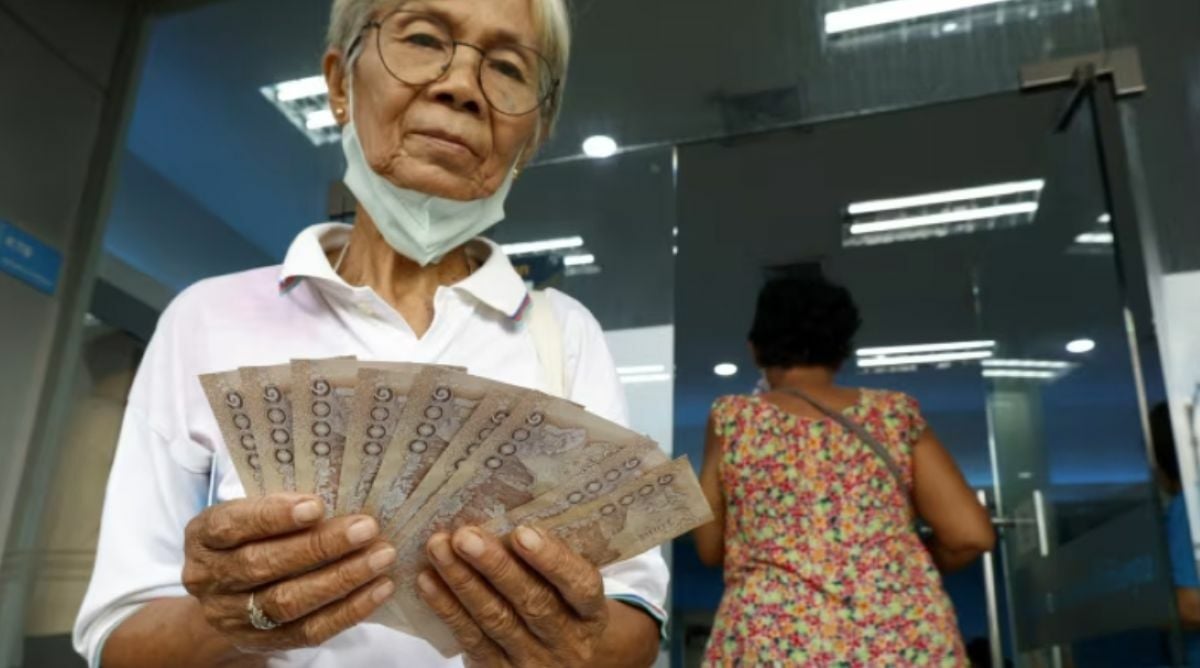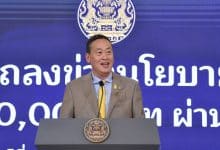Thailand cash handout to boost Q4 GDP growth despite challenges

The Thai government’s initial cash handout is anticipated to boost the national economy in the upcoming months, according to industrial leaders and brokerages. They recommend that the second phase of the handout target individuals with higher purchasing power to prolong economic stimulation.
In the first phase, the government distributed 10,000 baht in cash to each of the 14.5 million welfare cardholders and disabled individuals. Initially, the plan was to deliver this money via a smartphone app for use within local communities.
The Finance Ministry has the first phase as a success, with over 14 million people receiving transfers between September 25 and 30. Deputy Finance Minister Paopoom Rojanasakul confirmed last week that sufficient funds are available for the second phase. However, the method and timeline for the next phase will be determined by the economic stimulus committee, chaired by the premier.
Nuttaporn Triratanasirikul, Kasikorn Research Centre (K-Research) deputy managing director, pointed out that the fiscal multiplier for this cash handout is 0.3, which is higher than the original digital wallet scheme due to fewer spending restrictions.
“The recent handout can be spent anywhere and because it was cash, the fiscal multiplier to the economy is higher.”
K-Research has maintained its 2024 GDP growth forecast at 2.6%, factoring in the cash handout’s estimated 150 billion baht impact.
Foggy future
Nuttaporn noted that details of the second phase remain unclear, making it difficult for economists to predict its full effect.
“The second phase might be only 5,000 baht per person, according to some news reports, or it could be shelved because of the adverse impacts of the ongoing floods on the economy.”
K-Research estimates that flooding could cause at least 20 billion baht in economic losses.
KGI Securities (Thailand) Senior Vice President Rakpong Chaisuparakul sees the first phase aiding economic growth in the near term, particularly in the third and fourth quarters.
“The handout is a major reason why we became more bullish on the Thai commerce sector, which will be a prime beneficiary from this consumption stimulus.”
KGI economists predict the cash handout will drive fourth-quarter GDP growth to exceed 4.0% year-on-year, surpassing earlier estimates.
Foreign investment
Asia Plus Securities (ASPS) combines the cash handout with other factors like the 2025 fiscal budget and Google’s data centre investment in Thailand, projecting robust growth for at least six months.
The Thai Chamber of Commerce, led by Sanan Angubolkul, believes the handout will create an economic whirlwind through two rounds of spending, primarily on food and daily necessities. The chamber predicts fourth-quarter GDP growth of 3.5-4% year-on-year, with annual growth revised upward to 2.7-2.8%.
Mobile phone vendors reported significant sales spikes during the handout period. Somchai Sittichaisrichart, managing director of SIS Distribution Plc, noted a 200% increase in smartphone sales from September 23 to 29, with the most popular models priced between 3,000 to 5,000 baht.
Adisak Sukumvitaya, CEO of Jay Mart, observed a double-digit rise in smartphone demand from September 26 to October 2. Phones under 5,000 baht were popular in rural areas, while those over 10,000 baht sold well in hypermarkets, often through instalment plans.
Yod Chinsupakul, CEO of Line Man Wongnai, saw a surge in orders from previously inactive users, especially in rural areas. Ratthi Chatdamrongsak, Chief Commercial Officer of Line Thailand, reported increased marketing spend on the platform, particularly for fast-moving consumer goods.
However, the cash handout’s overall efficacy remains uncertain. Kriengkrai Thiennukul, chairman of the Federation of Thai Industries (FTI), expressed doubts as some recipients used the funds to repay debts rather than stimulate economic activity.
Money circulation
“It is acceptable to inject a huge amount of money into the economy, rather than keeping it in state coffers.”
Kriengkrai suggests the next phase targets those with higher purchasing power.
Pornchai Thiraveja, Director-General of the Fiscal Policy Office (FPO), assured that the first phase would increase domestic purchasing power, impacted by both the pandemic and recent flooding. The entire 145 billion baht for the initial phase came from additional budget allocations and emergency reserves.
“Some of the handouts may go towards repaying informal debts, but this is estimated to be a small portion.”
Pornchai noted the majority would likely be spent on daily living expenses. He emphasised that low-income groups typically spend most of their additional income.
The government initially expected GDP growth of 2.6 to 2.7% this year, excluding the stimulus scheme. With the handout, most funds are anticipated to enter the economy by the fourth quarter, supported by factors such as reduced pre-pandemic purchasing power, recent floods, and the upcoming new year holiday.
Despite the optimism for most sectors, the tourism industry remains sceptical. Thai AirAsia CEO Santisuk Klongchaiya and Thai Hotels Association President Thienprasit Chaiyapatranun reported minimal impact from the handout, suggesting a revival of the ‘We Travel Together’ scheme would more effectively boost tourism.
Prime Minister Paetongtarn Shinawatra initiated the 10,000 baht transfers on September 25, emphasising the government’s commitment to economic stimulus amidst ongoing challenges, reported Bangkok Post.
Latest Thailand News
Follow The Thaiger on Google News:


























